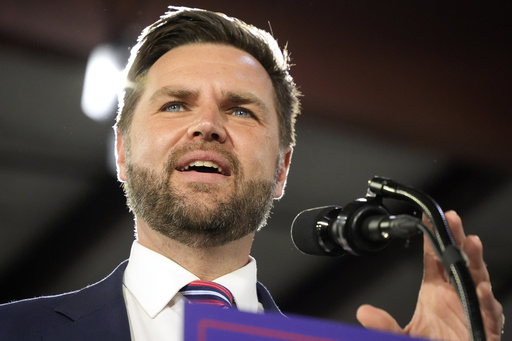
Ohio Senator JD Vance underwent a significant transformation when he converted to Catholicism in 2019. This spiritual shift not only filled a void he felt from his education at Yale and career accomplishments but also reshaped his political perspective. Embracing Catholicism provided Vance with a new lens through which to analyze societal issues such as addiction and family struggles as detailed in his bestselling book, “Hillbilly Elegy.”
Vance’s conversion led him to engage with a relatively unknown Catholic intellectual movement, often referred to as postliberals. While this group encompasses diverse viewpoints, they generally advocate for a muscular government controlled by themselves, intending to bring about a counterrevolution by asserting influence over institutions like universities and government agencies. Postliberals, including Vance, share traditional Catholic conservative stances on topics like abortion and LGBTQ+ rights but diverge by advocating for a more active role of government in shaping society.
Despite aligning with certain postliberal ideals, Vance has not explicitly labeled himself as an integralist, a subset within the movement seeking collaboration between the state and Catholic Church. Scholars caution that Vance may not subscribe entirely to all postliberal beliefs, as he independently formulates his opinions and selectively supports their proposals.
Vance’s political alignment with postliberals has sparked concerns, with some expressing apprehensions about the movement’s historical associations with authoritarian regimes. However, Vance has downplayed the influence of his Catholic faith on his policy decisions, emphasizing the necessity of respecting diverse viewpoints in a democracy.
As part of the Republican Party’s shifting stance on abortion following the overturning of Roe v. Wade, Vance has adapted his position to align with the party’s evolving platform. Despite his strong anti-abortion stance in the past, Vance now supports a more nuanced approach to abortion legislation, reflecting the changing dynamics within the party and society.
Vance’s interactions with prominent postliberal figures and his attendance at events focused on their ideologies have raised questions about his ideological leanings. While he has shown interest in postliberal ideas, experts note that Vance maintains a degree of independence in his decision-making and may not be fully committed to all aspects of the movement.
Vance’s journey into Catholicism and his subsequent engagement with postliberal concepts illustrate a complex interplay between personal beliefs, political ideologies, and societal influences. By navigating this dynamic landscape, Vance continues to shape his political identity while drawing from a diverse range of philosophical influences.
